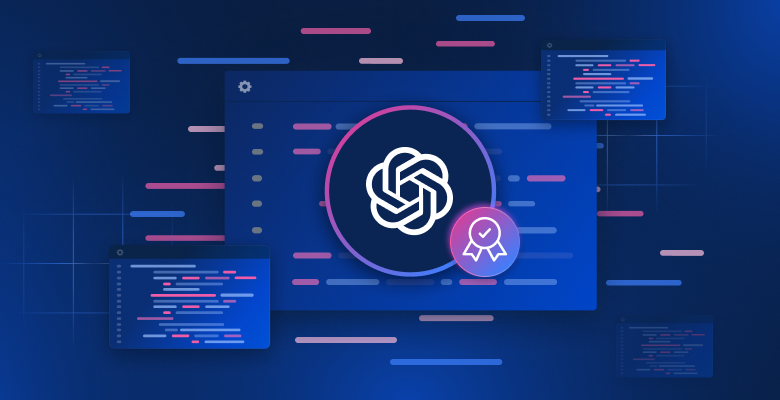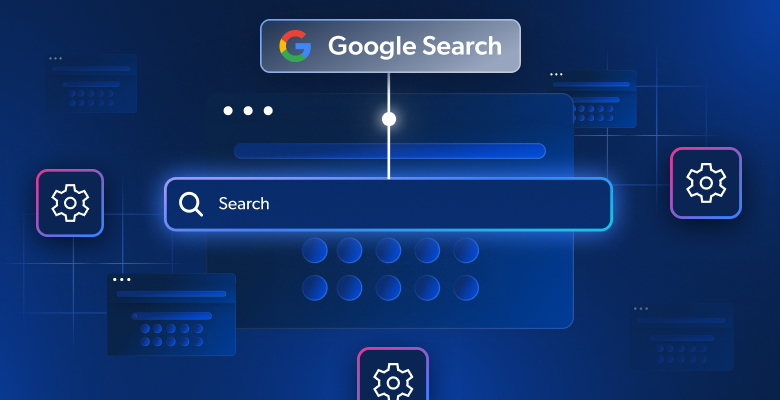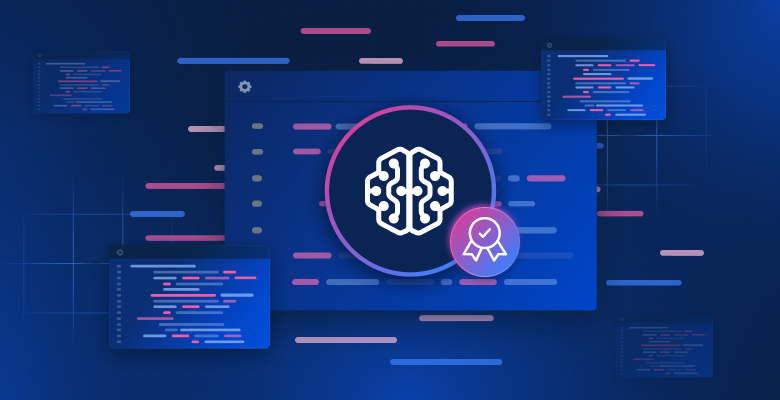In detail, in this article, you will see:
- HTTP Cookie Definition
- Purpose of HTTP Cookies
- Types of Cookies
- Cookie Attributes Explained
- The Changing Cookie Landscape (2026)
- HTTP Cookies: Pros and Cons
- Cookies in Web Scraping
- Summary
HTTP Cookie Definition
An HTTP cookie, also known as a “web cookie,” “browser cookie,” or simply “cookie,” is a small piece of data that a server sends to a user’s web browser. After being received and stored on the browser, cookies are sent back to the server with each subsequent request. HTTP cookies generally contain information about the user’s activity and help maintain session state between different browsing sessions.
Keep in mind that HTTP is a stateless protocol. This means that the server treats each request as an independent operation and has no memory of previous requests from the same user. Therefore, it is necessary to send additional information with each request to maintain the state of a user’s session. This is exactly what cookies accomplish.
Specifically, the cookie mechanism starts when a website’s server returns an HTTP response with a Set-Cookie header. This header contains data and optional attributes like expiration date, domain, path, and security flags. When the browser receives a response containing a Set-Cookie header, it stores the cookie data either in a text file on disk (for persistent cookies) or in memory (for session cookies). When the user subsequently visits a page on that website, the browser automatically sends the cookie back to the server in the Cookie header of the request.
Cookies play a key role in providing a more personalized experience, maintaining login sessions, and tracking user behavior. HTTP Cookies can also be used for security and authorization purposes.
Let us now look at use cases where HTTP cookies are especially useful.
Purpose of HTTP Cookies
HTTP cookies serve a variety of purposes. Let’s explore the three most important ones.
State/Session Management
HTTP cookies are used by websites to remember information about a user’s session. This information includes login credentials, shopping cart contents, search filters, form data, and scroll position on long pages. For example, when a user adds items to their shopping cart on an eCommerce website, this information is stored in a cookie. When the user closes the browser or navigates to another page, that valuable data is not lost but remains safe in the cookie saved on the disk or in the browser’s memory.
Without cookies, users would need to re-enter their information on every page, and shopping carts would empty each time they navigated away. This makes cookies essential for modern web applications.
Personalization
Cookies store user preferences such as preferred language, theme selection (light or dark mode), font size, timezone, and layout preferences. This information is critical to personalizing the user’s experience on the website, making it more enjoyable and accessible.
For instance, if you select “English” as your preferred language on a multilingual website, a cookie stores this preference so you don’t have to select it again on your next visit. Similarly, accessibility settings can be preserved across sessions to accommodate users with specific needs.
Tracking Users
Cookies allow tracking the behavior of a user on a website, such as which pages they visit, how long they stay on each page, which links they click on, and what search terms they use. This data can be analyzed to improve the overall user experience, adapting the content or layout of pages accordingly.
Cookies are also essential for collecting analytics data. For example, Google Analytics uses cookies to collect and report site usage statistics, helping website owners understand their audience and optimize their content. Marketing teams use cookie data to measure campaign effectiveness and conversion rates.
Types of Cookies
As you just learned, HTTP cookies are useful in a variety of circumstances. As a result, there are many different types of cookies. Let’s examine the most important classifications.
Based on Lifespan
Session cookies: These are temporary and stored only in the browser’s memory. They exist only until the user closes their web browser or the session expires. Session cookies do not have an expiration date set in their attributes. They are used to remember information about the user’s current browsing session, such as items in a shopping cart before checkout.
Persistent cookies: These are stored on the user’s hard drive and persist even after the web browser is closed. They have an explicit expiration date set via the Expires or Max-Age attribute. Persistent cookies are typically used to remember user preferences and maintain login sessions over extended periods (days, weeks, or even years).
Based on Origin
First-party cookies: These are set by the website domain that the user is directly visiting. They are used to remember information about the user’s session and preferences on that specific site. First-party cookies are generally considered more privacy-friendly and are not blocked by modern browsers.
Third-party cookies: These are set by a different domain than the one the user is visiting. They are typically loaded through embedded content like advertisements, social media widgets, or analytics scripts. Third-party cookies are commonly used for cross-site tracking and targeted advertising. Examples include cookies from Google Analytics, Facebook Pixel, and various ad networks.
Note that major browsers including Chrome, Safari, and Firefox are phasing out support for third-party cookies due to privacy concerns, which we’ll discuss in more detail later.
Cookie Attributes Explained
Modern HTTP cookies can include several important attributes that control their behavior and security. Understanding these attributes is crucial for both web developers and those working with web scraping.
Domain and Path
Domain: Specifies which domain can access the cookie. If set to .example.com, the cookie is accessible to example.com and all its subdomains (like blog.example.com, shop.example.com). If not specified, it defaults to the host that set the cookie, excluding subdomains.
Path: Defines the URL path that must exist in the requested URL for the browser to send the cookie. For example, Path=/store means the cookie will only be sent for requests to /store and its subdirectories.
Expiration and Lifetime
Expires: Sets a specific date and time when the cookie should be deleted. Example: Expires=Wed, 21 Oct 2026 07:28:00 GMT
Max-Age: Specifies the number of seconds until the cookie expires, relative to when it was received. Example: Max-Age=3600 (expires in 1 hour). If both Expires and Max-Age are set, Max-Age takes precedence.
Security Attributes
Secure: When this flag is set, the cookie is only sent over HTTPS connections, never over unencrypted HTTP. This prevents the cookie from being intercepted during transmission. Example: Set-Cookie: sessionid=abc123; Secure
HttpOnly: This flag prevents JavaScript from accessing the cookie through document.cookie. It helps protect against cross-site scripting (XSS) attacks where malicious scripts try to steal session cookies. Example: Set-Cookie: sessionid=abc123; HttpOnly
SameSite: This attribute controls whether cookies are sent with cross-site requests, providing protection against cross-site request forgery (CSRF) attacks. It has three possible values:
SameSite=Strict: Cookie is only sent in a first-party context (same site that set it)SameSite=Lax: Cookie is sent with top-level navigation and same-site requests (default in modern browsers)SameSite=None: Cookie is sent with both same-site and cross-site requests (requiresSecureattribute)
Example: Set-Cookie: tracking=xyz789; SameSite=None; Secure
The Changing Cookie Landscape (2026)
The way cookies work and are used on the web is undergoing significant changes driven by privacy concerns and regulatory requirements.
Third-Party Cookie Deprecation
Major web browsers are phasing out support for third-party cookies:
Safari: Implemented Intelligent Tracking Prevention (ITP) starting in 2017, and now blocks third-party cookies by default.
Firefox: Enabled Enhanced Tracking Protection by default in 2019, blocking third-party tracking cookies.
Chrome: After multiple delays, Google is gradually phasing out third-party cookies throughout 2024-2026, affecting billions of users. Chrome initially planned complete removal by 2024 but extended the timeline to develop and test privacy-preserving alternatives.
This shift impacts online advertising, analytics, and cross-site tracking. Companies are developing alternative technologies like Google’s Privacy Sandbox, which aims to enable ad targeting without individual tracking.
Privacy Regulations
Cookie usage is now heavily regulated in many jurisdictions:
GDPR (General Data Protection Regulation): European Union law requires websites to obtain explicit consent before setting non-essential cookies. Users must be able to accept or reject cookies, and websites must clearly explain what data is collected and why.
CCPA/CPRA (California Consumer Privacy Act): California law gives users the right to know what personal information is collected (including via cookies) and to opt out of its sale.
ePrivacy Directive: Also known as the “Cookie Law,” this EU directive requires websites to inform users about cookies and obtain consent before storing them.
These regulations have led to the proliferation of cookie consent banners across websites. Non-compliance can result in significant fines (up to 4% of global annual revenue under GDPR).
Modern Alternatives to Cookies
As cookies face limitations, web developers are increasingly using alternative storage mechanisms:
localStorage: Provides 5-10MB of storage per origin, persists indefinitely until explicitly deleted, accessible via JavaScript.
sessionStorage: Similar to localStorage but data is cleared when the browser tab/window is closed.
IndexedDB: A more powerful client-side database that can store larger amounts of structured data.
However, these alternatives also raise privacy concerns and don’t replace cookies for server-side session management.
HTTP Cookies: Pros and Cons
HTTP cookies are a versatile and powerful tool that covers various needs. However, they also come with some drawbacks to consider. Let’s examine the main pros and cons of HTTP cookies.
Pros
Easy to implement and use: Cookies are a simple and effective way to maintain session state over HTTP. The browser handles cookie storage and transmission automatically, requiring minimal effort from developers.
Can be stored on disk: Persistent cookies allow data from previous browsing sessions to be retained, even after closing the browser. This enables “remember me” functionality and persistent user preferences.
Can be shared between pages and domains: The same cookie can be used by multiple pages on the same site and by different subdomains of the same domain (when the Domain attribute is properly configured).
Wide browser support: Cookies have been a web standard since the 1990s and are supported by all modern browsers and most legacy browsers.
Cons
Limited in size and number: Individual cookies are limited to 4KB of data. Modern browsers typically allow at least 50 cookies per domain, with total storage around 4MB per domain. While adequate for most use cases, this can be restrictive for data-intensive applications.
Can be deleted by users: Users can delete cookies at any time through their browser settings, clear browsing data, or use private/incognito mode. This can cause problems for websites that rely heavily on cookies for functionality or personalization.
Security and privacy risks: Cookies can contain sensitive information about the user and pose a security risk if not properly secured. Without proper flags (Secure, HttpOnly, SameSite), cookies can be vulnerable to:
- Session hijacking
- Cross-site scripting (XSS) attacks
- Cross-site request forgery (CSRF) attacks
- Man-in-the-middle interception
Privacy concerns and tracking: Cookies can be used to track and collect extensive data on a user’s behavior across multiple websites, raising significant privacy concerns. This has led to strict regulations and the deprecation of third-party cookies.
Being phased out for cross-site tracking: Major browsers are blocking or restricting third-party cookies, fundamentally changing how online advertising and analytics work.
Performance impact: Each HTTP request to a domain includes all applicable cookies in the headers, which can add overhead to network requests, especially on mobile connections.
Cookies in Web Scraping
When it comes to web scraping, it is essential that your data retrieval script behaves similarly to a human user. Otherwise, the anti-scraping technologies adopted by many websites may identify your scraping script as a bot and block it accordingly.
Why Cookies Matter in Web Scraping
Do not forget that it is the server that instructs the browser to create cookies through the Set-Cookie header. The server itself expects these cookies to be present in subsequent HTTP requests. Not receiving expected cookies signals that the request is suspicious, and the server might decide to block it. By properly managing cookies, web scrapers can crawl web pages without raising suspicion.
Modern websites use cookies as part of their bot detection systems. They may:
- Set unique session IDs and track behavior patterns
- Use cookies to implement rate limiting per session
- Require specific cookie values to access protected content
- Check for the presence of cookies that legitimate browsers would have
Session Persistence and Authentication
Many scraping tasks require maintaining a session across multiple requests. For example:
- Logging into a website to access protected data
- Maintaining shopping cart state while scraping product information
- Preserving search filters and pagination state
- Keeping track of viewed items to avoid re-scraping
Cookies enable this session persistence. When you log into a website, the server typically returns a session cookie that authenticates subsequent requests. Without properly storing and sending this cookie, your scraper would need to re-authenticate with every request, which is inefficient and suspicious.
Cookie Rotation and Management
Keep in mind that cookies contain information about a particular user’s session. Thus, by properly managing cookies, you can simulate multiple users accessing a website. This can make your web scraping operation more difficult to identify, track, and block.
Advanced scraping strategies include:
- Using separate cookie jars for concurrent scraping sessions
- Rotating cookies to distribute requests across multiple “users”
- Respecting cookie expiration times to maintain realistic behavior
- Clearing cookies periodically to start fresh sessions
Handling Cookie Consent Popups
Modern websites display cookie consent banners due to privacy regulations. Your scraper needs to handle these popups by:
- Accepting cookies programmatically (clicking “Accept All” buttons)
- Dismissing the banner to access page content
- Storing consent choices in cookies for subsequent requests
Practical Example: Managing Cookies in Python
Here’s a basic example using the popular requests library:
import requests
# Create a session to automatically handle cookies
session = requests.Session()
# Login and receive session cookie
login_data = {
'username': 'your_username',
'password': 'your_password'
}
login_response = session.post('https://example.com/login', data=login_data)
# Session cookies are now stored automatically
# Make authenticated requests
protected_page = session.get('https://example.com/protected-data')
# Access cookies if needed
print(session.cookies.get_dict())
# Save cookies for later use
import pickle
with open('cookies.pkl', 'wb') as f:
pickle.dump(session.cookies, f)
# Load cookies in a new session
with open('cookies.pkl', 'rb') as f:
session.cookies.update(pickle.load(f))The Challenge of Cookie Management at Scale
Dealing with cookies when scraping data from the web is critical, but not easy at scale. Challenges include:
- Managing thousands of concurrent sessions with separate cookie stores
- Handling cookie expiration and renewal across long-running scraping jobs
- Properly parsing and setting complex cookie attributes (Domain, Path, Secure, etc.)
- Dealing with anti-bot systems that validate cookie values and behavior patterns
- Respecting HttpOnly cookies that can’t be accessed via JavaScript in browser automation
That is why you should rely on an advanced, fully featured, modern scraping tool such as Bright Data’s Web Scraper API. With such a tool, you can easily manage HTTP cookies without writing complex cookie handling code.
Automate Cookie Management with Bright Data
Bright Data’s Web Unlocker automatically handles all cookie complexity for you:
✅ Automatic cookie management – No manual extraction, storage, or rotation needed
✅ Session persistence – Maintains sessions across distributed requests and IP rotations
✅ Cookie consent handling – Automatically accepts or dismisses cookie consent banners
✅ Site-specific cookie profiles – Uses proven cookie configurations for different websites
✅ 99.9% success rate – Even on sites with complex cookie requirements and bot detection
Web Scraper API will help you extract data from the web while bypassing all anti-scraping technologies, including CAPTCHAs. The system handles cookie rotation, expiration, and renewal automatically, letting you focus on data extraction rather than cookie management logistics.
Summary
In this article, you learned what HTTP cookies are, why and when they are useful, and how to use them for web scraping. Cookies are small pieces of data stored by the web browser and used to remember information about your browsing session. As you saw here, they come in handy in a variety of scenarios and use cases, from maintaining login sessions to personalizing user experiences and enabling analytics.
At the same time, cookies bring challenges and concerns. Privacy regulations like GDPR and CCPA have changed how websites must handle cookies. Third-party cookies are being phased out by major browsers. Security attributes like Secure, HttpOnly, and SameSite are now essential for protecting user data.
In web scraping, dealing with cookies is critical but complex, especially at scale. Proper cookie management is essential to avoid being blocked and to maintain session state across multiple requests.
For this reason, you should consider a web scraping solution such as Web Scraper API, which comes with everything you need to effortlessly scrape data from the web. You can directly purchase one of the several complete datasets available on Bright Data. Otherwise, you should consider using Web Unlocker as a 99.9% success rate solution. Our team can help you decide and choose the perfect solution, tailored for your needs.






